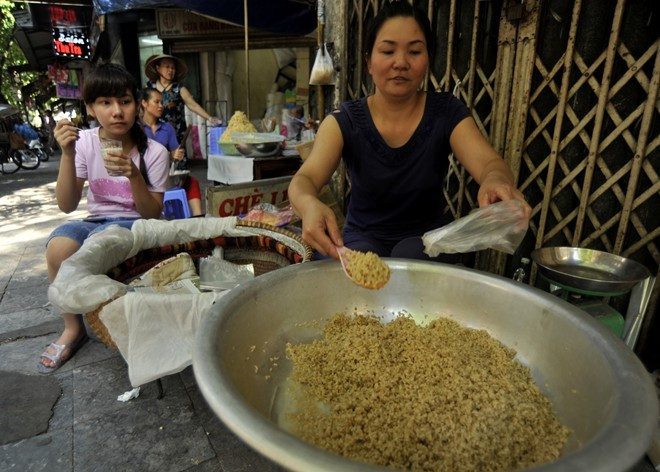The Duan Ngọ Festival is considered the second largest festival of the year, following the Lunar New Year. So why is the Duan Ngọ Festival celebrated on the 5th day of the 5th month in the lunar calendar?
Every year, on the 5th day of the 5th lunar month, people across the country celebrate the Duan Ngọ Festival. They prepare offerings and buy fruits to pay respects, but many may not be aware of the significance of this day.
According to Nguyen Van Hieu, Head of the Department of Cultural Studies at the University of Social Sciences and Humanities in Ho Chi Minh City, the Duan Ngọ Festival has been a traditional festival celebrated in several East Asian countries such as Vietnam, South Korea, and China. The festival has long been a part of Eastern folk culture and has influenced cultural activities.

People in various regions across the country still maintain the custom of buying sticky rice wine, fruits, and offerings during the Duan Ngọ Festival.
According to Hieu, “Duan” means the beginning, and “Ngọ” refers to the 5th month. Thus, Duan Ngọ signifies celebrating the festival on the first day of the 5th month. Many sources incorrectly suggest that “Ngọ” means noon (from 11 AM to 1 PM).
“In ancient calculations, the 11th month was considered the first month of the year, so, according to the 12 zodiac signs, “Ngọ” corresponds to the 5th month, not noon,” Hieu explained.
Regarding the 5th day of the 5th lunar month, Hieu mentioned that in the past, people referred to the 1st day of the 5th month as “So Ngo,” the 2nd day as “Nhi Ngo,” the 3rd day as “Tam Ngo,” the 4th day as “Tu Ngo,” and the 5th day as “Ngu Ngo.”
“The Duan Ngọ Festival is also known as Duan Ngu (meaning the 5th day of the 5th month), so people celebrate the Duan Ngọ Festival on the 5th day of the 5th lunar month,” Hieu stated.
Professor Ngo Duc Thinh further noted that in Vietnam, the Duan Ngọ Festival is colloquially referred to as the “Insect Killing Festival.” May is the middle of the year, a time of seasonal transition to hot weather, which can lead to the outbreak of diseases, hence the need to control pests.
According to ancient beliefs, pests are often present in the human body, especially in the digestive system. If these pests are not eliminated, they will multiply and cause harm to individuals.
Throughout the year, they hide deep in the body, only surfacing on the 5th day of the 5th month. Therefore, people typically choose the Duan Ngọ Festival to eliminate them by consuming dishes such as sticky rice wine and various fruits like plums, peaches, mangoes, and lychees. Additionally, there are other dishes depending on local customs, such as “Banh U Tro” (a type of sticky rice cake) in Da Nang and duck meat in Ho Chi Minh City.





















































